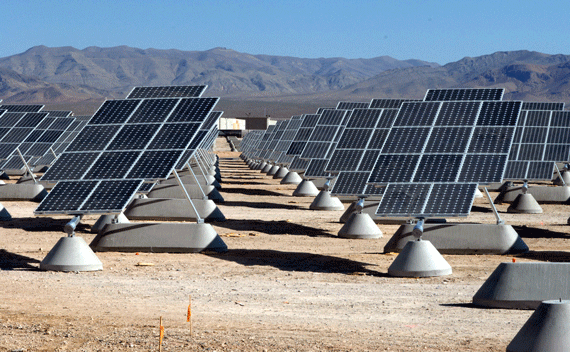Should the Climate Talks be Focused on Technology?
More on:
The Cancun climate talks aren’t over yet, but Andy Revkin already has something of a post-mortem up at the Times. In his though-provoking post, he muses over whether we’d have been better off with a Framework Convention on Technology Change, rather than the Framework Convention on Climate Change that’s guiding the fraught negotiations here. I’m not sure that a substitute is called for – after all, it’s important to remember that the goal of all this effort isn’t simply technological change for technology’s sake. But his post reminds me of something that I’ve been thinking quite a bit about lately: we’ve been spending a lot of time trying to come up with rules for emissions cuts, but very little figuring out rules for the world of technology.
The emerging conventional wisdom is that shifting to a focus on technology will let us escape the messy burden-sharing fights that blight the climate talks. I’d bet that it simply shifts them to a new arena. Consider three critical issues.
First, the world needs to ramp up public investment in the sorts of early stage innovation efforts that firms tend to neglect. But who should pay for that? We’re talking big bucks: the International Energy Agency has estimated a need on the order of $25-$50 billion dollars annually, and that’s only if investments aren’t duplicated by multiple countries (and if the money is spent wisely). Coordination, at least at an informal level, seems essential.
Second, once you start focusing on technology, you inevitably slide into commercial disputes. (Three colleagues of mine and I address this in detail in a recent study.) The current U.S.-China fights over trade and investment in clean energy are the product of a strategic focus in both countries on developing their economies into clean technology powerhouses. This battle already draws in some existing institutions, like the WTO, but we’re far from resolving any of the core issues.
Third, just like the traditional climate talks, technology discussions aren’t immune to emotionally charged clashes. Intellectual property rights are an obvious example. In Q&A for a talk here yesterday, I tried to explain why the United States insists on keeping the current rules for IPR. Three times, the same gentleman in the audience loudly interrupted me, explaining why that position was wrong. But I wasn’t advocating it – I was just explaining it. His inability to contain himself reminded me that technology issues can elicit irrational responses just as much as anything else can.
None of this means that we shouldn’t be focusing much more on technology than we have to date; I’m quite sympathetic to that case. But technology isn’t magic. International rivalry is a hard thing to avoid, no matter how you frame the climate problem.
More on:
 Online Store
Online Store
